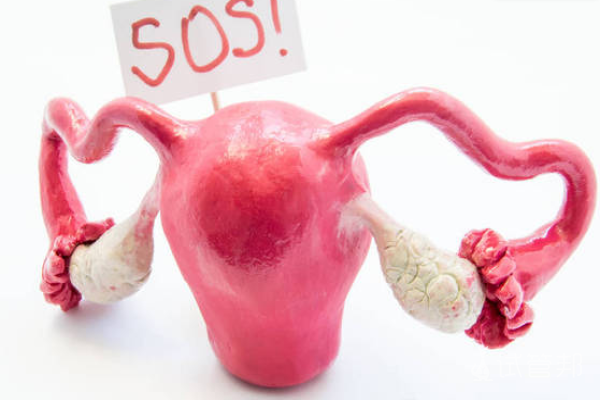Polycystic Ovary Syndrome (PCOS) is a common endocrine disorder that affects women of reproductive age, leading to symptoms such as irregular periods, excessive hair growth (hirsutism), acne, weight gain, and difficulty in conceiving. From a biomedical standpoint, it is associated with insulin resistance, hormonal imbalances, and the presence of multiple cysts on the ovaries. Conventional treatment typically involves hormonal therapies and lifestyle changes, but more women seek complementary approaches like Traditional Chinese Medicine (TCM) to manage PCOS symptoms more holistically.
TCM views PCOS as a disorder of systemic imbalance, involving the Kidney, Spleen, and Liver organ systems, alongside disruptions in the flow of Qi and Blood. By using acupuncture, herbal medicine, and dietary adjustments, TCM works to restore balance and support the body’s natural healing abilities.
1. Regulating Hormonal Imbalance through the Kidney and Liver Systems
In TCM, the Kidney system is seen as the root of reproductive health, while the Liver governs the free flow of Qi and Blood. PCOS is often associated with a deficiency in Kidney Yang (the warming and activating aspect of the Kidney) or Kidney Yin (the nourishing and cooling aspect). When this system is out of balance, it can lead to irregular menstrual cycles and fertility challenges, common symptoms in PCOS. The Liver’s role is to ensure smooth flow of energy, and when its function is impaired, it can lead to Liver Qi Stagnation, manifesting as stress, emotional imbalance, and the build-up of cysts on the ovaries. Acupuncture and herbs are often used to harmonize these systems and promote better reproductive function.
2. Supporting Ovulation and Regulating the Menstrual Cycle
Many women with PCOS experience anovulation (lack of ovulation), which leads to irregular or absent menstrual periods. In TCM, this may be attributed to Blood Stasis or Dampness blocking the flow of energy and Blood in the reproductive system. The presence of cysts may correspond to accumulations of Damp-Phlegm, a condition where fluids stagnate and congeal due to poor digestion and sluggish metabolism. Acupuncture and herbal treatments aim to clear Dampness and activate the flow of Qi and Blood in the lower abdomen.
3. Improving Insulin Sensitivity and Managing Weight
Insulin resistance is a key feature of PCOS, contributing to weight gain, difficulty in losing weight, and exacerbation of hormonal imbalances. In TCM, this is often viewed as a disorder of the Spleen and Stomach systems, which govern digestion and the transformation of food into energy. Poor digestive function can lead to the formation of Dampness and Phlegm, manifesting as weight gain, especially in the abdominal area. TCM can help improve insulin sensitivity, making it easier to manage weight.
4. Reducing Stress and Emotional Imbalance
Chronic stress is a well-known aggravator of PCOS symptoms, as it raises cortisol levels and disrupts hormonal balance further. In TCM, emotional stress is closely linked to Liver Qi Stagnation, where the smooth flow of energy becomes blocked, leading to mood swings, anxiety, and irritability. Acupuncture is particularly effective for alleviating stress, as it helps regulate the autonomic nervous system and encourages the release of endorphins, promoting a sense of calm and well-being.
5. Balancing Androgens and Reducing Excess Hair and Acne
Excess androgens (male hormones) are a hallmark of PCOS and contribute to unwanted symptoms like hirsutism (excessive facial and body hair) and acne. In TCM, this is often seen as a combination of Damp-Heat and Blood Stasis, leading to blockages in the skin and hair follicles. Acupuncture and herbs are often combined to tonify the Blood and regulate hormone levels, addressing both hirsutism and acne at the root.
6. Individualized TCM Diagnosis and Treatment
One of the key strengths of TCM is its highly individualized approach to treatment. No two cases of PCOS are the same, and a TCM practitioner will carefully assess each patient’s unique symptoms, pulse, tongue, and overall constitution to develop a personalized treatment plan. This can include a combination of acupuncture, herbal formulas, lifestyle adjustments, and dietary recommendations to ensure that the body’s internal balance is restored.
Conclusion
TCM offers a holistic and individualized approach to managing PCOS by addressing the underlying imbalances in the body’s organ systems, regulating the menstrual cycle, promoting ovulation, and supporting emotional and metabolic health. While TCM may not be a quick fix, its focus on restoring balance and supporting the body’s natural healing capacity can provide long-term relief for many women with PCOS. By working alongside conventional treatments, TCM can be a valuable complement in achieving better reproductive health, hormonal balance, and overall well-being.
If you would like to learn more about this, please reach out to us, as we offer complimentary consultations! This treatment option is offered by Xianmin Yu, our experienced registered TCM Practitioner and Acupuncturist.

